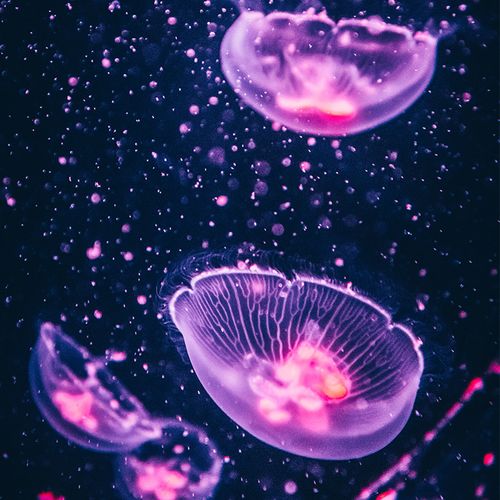Scientists have found that a naturally occurring protein in one of the planet's oldest sea creatures—the jellyfish—might hold the key to improved memory and comprehension. The substance, apoaequorin (a-poh-ee-kwawr-in), found in the Aequorea victoria jellyfish species, has a unique way of working in the brain that is different from other natural memory enhancers. Many of my patients already are benefiting from it. Apoaequorin not only seems to reverse some of the effects of aging on the brain but also might help alleviate the effects of serious neurodegenerative diseases such as Alzheimer's disease, Parkinson's disease and ALS (Lou Gehrig's disease).
The Jellyfish Connection
Scientists first discovered apoaequorin and its companion molecule, green fluorescent protein (GFP), in the Aequorea jellyfish, found off the west coast of North America, in the 1960s. The natural glow of GFP enables researchers to observe microscopic processes within cells that were previously invisible, such as how proteins are transported or how viruses enter cell membranes. Apoaequorin, which binds to calcium and becomes luminescent once it does, has been used since the 1990s in a similar way to track the activity of calcium in the body's cells. Later, three researchers who played key roles in developing these chemical markers were awarded the Nobel Prize in Chemistry.
Memory-Boosting Properties
Apoaequorin's value as a memory-boosting supplement also depends on its calcium-binding properties but in a different way. In the brain, calcium plays an important role in the chemical process that allows nerve cells to recharge before firing. It has to be present in just the right amounts. If too much calcium builds up inside a nerve cell, it interferes with the nerve-firing process and causes the oell to die. One of the key roles of calcium-binding proteins is to prevent the toxic buildup of calcium by removing excess calcium from the nerve cells.
In the normal course of aging, beginning at around age 40, the number of calcium-binding proteins in our brain cells starts to decline, resulting in the gradual buildup of toxic calcium inside these cells. This leads to impaired cellular function and eventually brain damage as the toxic calcium kills off brain cells. The symptoms of this age-related deterioration start slowly but then accelerate as we get older.
Because apoaequorin is similar to the naturally occurring calcium-binding proteins in the brain, the theory is that by taking daily supplements, you can replace the calcium-binding proteins that are lost through the aging process—allowing your brain cells to function optimally again while also preserving them from the long-term toxic effects of excess calcium.
A “Eureka” Moment
The jellyfish protein went from "scientific discovery to "supplement for the brain" because of the efforts of Mark Underwood, cofounder of the biotech firm Quincy Bioscience, the company that makes Prevagen (888-814-0814, www. prevagen.com), the only commercially available form of apoaequorin Underwood's "eureka" moment came when he was reading about an Australian swimmer who developed multiple sclerosis-like symptoms after being stung by a jellyfish. Underwood wondered what protected the jellyfish from its own venom...and whether apoaequorin's calcium-binding abilities could have neuroprotective properties.
His company conducted a number of studies in conjunction with the University of Wisconsin-Milwaukee that found that apoaequorin did seem to have a powerful protective effect on brain cells. In one study, 56 people ranging in age from 20 to 78 showed significant improvements in memory after taking 10 mg of Prevagen daily for 30 days. More than half the group reported gains in general memory and information retention...two-thirds did better at word recall...and 84% showed improvement in their ability to remember driving directions.
Most of my patients and others report that taking Prevagen helps them feel mentally sharper, improves their memory and gives them more mental energy. Some even say that their mood is enhanced and that they sleep more soundly.
How To Use It
Prevagen is best taken in the morning (because cognitive function is more important during the day than at night), with or without food. I recommend it for anyone over age 40 who wants to improve memory and focus. While 10 milligrams (mg) daily is the recommended starting dose, apoaequorin also is safe at higher doses. I recommend that my own patients who have suffered a noticeable decline in cognitive function start out with 10 mg daily for four weeks. If they don't notice an improvement in memory and focus, they can increase to 20 mg daily. Most of my patients benefit from taking 10 mg or 20 mg daily. Research has shown that Prevagen is safe to take with other memory-enhancing supplements, such as omega-3 fish oils, or medications, such as donepezil (Aricept). People with allergies to fish or shellfish can use it because jellyfish is neither. The manufacturer of Prevagen is exploring apoaequorin's potential as a medical treatment for conditions such as Alzheimer's disease and Parkinson's disease.
